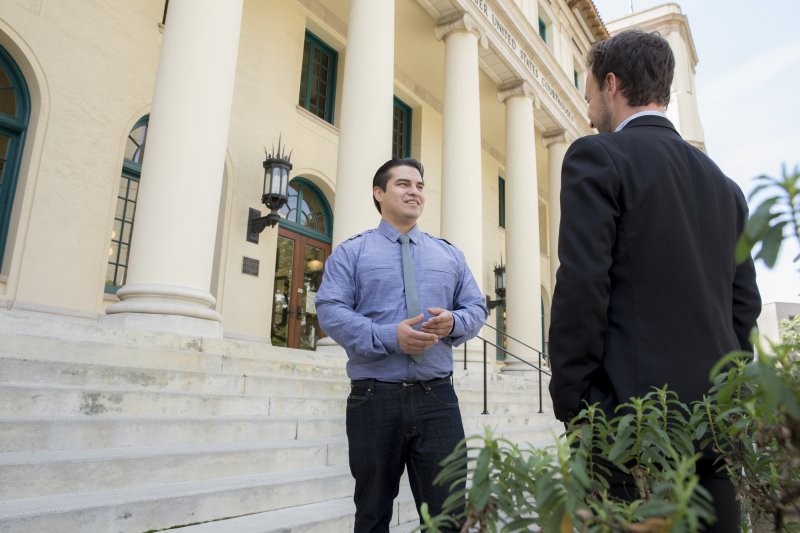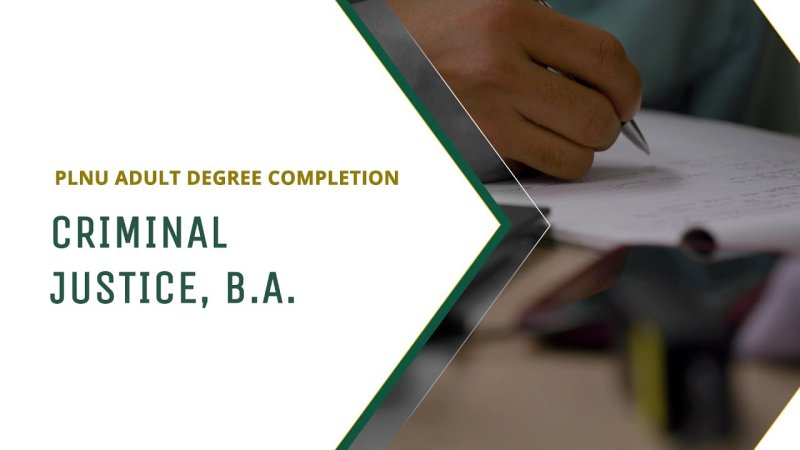
Choosing a college major is a pivotal decision that shapes one's academic journey and, ultimately, their career trajectory. For those interested in the intricacies of law, governance, and societal order, two popular degree options are Political Science and Criminal Justice.
While both fields share similarities, they also have differences that can shape career opportunities post-graduation. Let’s dive into the nuances between political science and criminal justice programs.
Political Science: Navigating the Political Landscape
Are you interested in political questions of social justice, personal liberty, and equality? Are you an avid follower of political and international news? If you want to study such critical issues as human rights, race and ethnicity, gender and politics, elections, globalization, war and peace, and protest politics, consider a political science degree.
Academic Focus
Political science, often referred to as poli-sci, is a versatile discipline that delves into the theory and practice of:
- Politics
- Government systems
- International relations
- Public policy
Students in this field explore the mechanisms of political power, the evolution of political thought, and governance dynamics.
Skill Development
One of the strengths of a political science degree lies in its emphasis on critical thinking, research, and analytical skills. Students develop the ability to dissect complex issues, assess policy implications, and communicate effectively—essential skills in many professional spheres.
Particular skills you can practice in a political science program include:
- Understanding how politics work worldwide
- Introducing yourself to international relations
- Learning about American campaigns and elections
- Studying comparative politics
- Reflecting on Western political thought
Career Opportunities
A degree in political science opens doors to many career opportunities. Graduates can pursue roles in government, public administration, international organizations, think tanks, advocacy groups, and the private sector.
Political consultants, analysts, lobbyists, diplomats, and public affairs specialists are just a few examples of potential career paths.
Graduate Studies
Many political science graduates opt to pursue advanced degrees, such as Master’s or Ph.D. programs, to specialize in areas like public policy, international relations, or political theory. This can lead to academic positions, research roles, or high-level positions in governmental or non-governmental organizations.
Criminal Justice: Bringing Peace and Upholding the Law
Are you committed to protecting and meeting the needs of others? Preventing the wide-reaching effects of crime? Bringing justice, healing, and restoration to your community? If you answered yes to any of these questions, consider a bachelor’s degree in criminal justice.
Academic Focus
A branch of social science, criminal justice is centered around understanding and implementing:
- The legal system
- Crime prevention
- Law enforcement
- The correctional system
Criminal justice provides a comprehensive view of the judicial process from investigation to adjudication. Take it from PLNU’s Department of Sociology, Social Work, and Family Sciences Chair Kevin Modesto: “The criminal justice system provides a unique arena to ensure justice and facilitate restoration. At PLNU, we intend to train our students to see opportunities for transformation in every situation, becoming agents of hope in communities they serve.”
Students studying criminal justice programs engage with a curriculum that includes criminal law, criminology, law enforcement procedures, corrections, and criminal justice ethics. They gain insights into the sociological, psychological, and legal aspects of crime and punishment.
Particular skills you can practice in a criminal justice program include:
- Understanding justice in a complex society
- Introducing yourself to criminology
- Researching methods for criminal justice
- Reflecting on social and community policing
- Studying constitutional foundations
- Learning about restorative justice and victimology
Skill Development
Criminal justice programs are designed to cultivate practical skills relevant to law enforcement and the legal system. These may include investigative techniques, crime scene analysis, legal research, and conflict resolution.
Graduates are well-prepared for careers that require a strong understanding of criminal law and procedure.
______
Who are you called to be?
Pursue your purpose at PLNU.
______
Career Opportunities
Graduates with degrees in criminal justice are well-positioned for roles within law enforcement agencies, the court system, corrections facilities, and private security firms. Potential career paths include police officers, detectives, probation officers, correctional officers, and legal assistants. Additionally, opportunities in private security and consulting firms are available.
Here’s a peek at three mentioned careers above.
Forensic Psychologist
Forensic psychologists engage with clients through numerous individual sessions, delving into psychological data that could aid in diagnosing an individual or shedding light on the causes of a specific crime.
As a forensic psychologist, you're tasked not only with gathering and presenting information but also with the critical tasks of evaluating, diagnosing, and providing care for individuals struggling with mental health issues.
Paralegal
Within the realm of law, a paralegal frequently acts as the backbone of their firm. Their core duties revolve around assisting and working closely with the overseeing attorneys. This involves tasks such as:
- Collecting and scrutinizing evidence
- Monitoring court submissions
- Overseeing the development of complex cases on a large scale
This profession is highly sought-after, demanding exceptional organizational abilities, an eye for detail, and research skills.
Probation Officer
Probation officers work closely with individuals throughout their probation period, aiding in their rehabilitation and equipping them for life beyond probation. This career requires interpersonal and communication abilities to support individuals transitioning from incarceration as they pursue continued education, secure meaningful employment, and successfully undergo rehabilitation.
Interested in learning more? Read on for 11 careers you can pursue with a criminal justice degree.
Graduate Studies
While not as common as in political science, some graduates pursue advanced degrees in fields like criminology, criminal justice administration, or law. This can lead to specialized roles within the criminal justice system or academia. For example, criminal profilers, victim advocates, polygraph examiners, or on the other hand, professors, curriculum developers, and academic advisors.
Finding the Career Path for You
When considering the career trajectories of political science and criminal justice graduates, it's important to note that both fields offer substantial opportunities for advancement and specialization. However, the nature of the roles and the industries they lead to can vary significantly.
With either degree program, you explore careers in local, state, and national governmental organizations. Moreover, you can work in a variety of sectors.
Popular Sectors for Both Political Science and Criminal Justice
Common political science sectors with notable growth include:
- International Relations and Global Affairs
- Public Policy and Administration
- Political Consulting and Campaign Management
- Advocacy and Lobbying
- Political Journalism and Media
- Environmental Policy and Sustainability
- Security and Intelligence Analysis
- Nonprofit and Non-Governmental Sector
- Academia and Research Institutions
- Corporate and Business Strategy
Common criminal justice sectors with notable growth include:
- Cybersecurity and Digital Forensics
- Corrections and Rehabilitation
- Private Security and Surveillance
- Legal and Paralegal Services
- Forensic Science and DNA Analysis
- Homeland Security and Counterterrorism
- Community Policing and Crime Prevention
- Victim Advocacy and Support Services
- Environmental and Wildlife Law Enforcement
- Social Services and Youth Programs
As you can see, political science graduates often find themselves at the intersection of policy-making, advocacy, and diplomacy. They may work for government agencies, think tanks, non-profits, or international organizations, influencing public policy and global affairs.
On the other hand, criminal justice graduates are integral to maintaining law and order within society. They play crucial roles in the investigation, prosecution, and rehabilitation of offenders. Additionally, the field offers opportunities for specialization in areas like forensics, cybersecurity, or homeland security.
Which career path suits you best? In conclusion, a good fit for someone studying political science requires strong critical thinking, analytical skills, a genuine interest in political systems, and a commitment to staying informed about global affairs.
On the other hand, a good fit for someone studying criminal justice requires a deep interest in legal frameworks, a commitment to social justice, and strong ethical standards in law enforcement. Effective communication skills and a dedication to community betterment are also essential.
Take the Next Step
PLNU offers four-year bachelor’s programs in both political science and criminal justice. Each of PLNU’s programs is designed to help you fulfill your purpose, make meaningful connections, and advance your career.

